 FDA is warning consumers that Reumofan Plus, marketed as a natural dietary supplement for pain relief and other serious conditions, contains several active pharmaceutical ingredients not listed on the label that could be harmful.
FDA is warning consumers that Reumofan Plus, marketed as a natural dietary supplement for pain relief and other serious conditions, contains several active pharmaceutical ingredients not listed on the label that could be harmful.
Here’s what we know. Continue reading Consumer alert: Reumofan Plus →
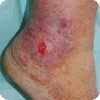 In this Cochrane review, researchers at the University of Malaya, in Kuala Lumpur, reviewed this common, chronic, recurring condition, which has a prevalence in the UK of 1.5 to 3 per 1000 and is estimated to cost the NHS £400m ($720m; €600m) a year. Continue reading Electromagnetic therapy for venous leg ulcers →
In this Cochrane review, researchers at the University of Malaya, in Kuala Lumpur, reviewed this common, chronic, recurring condition, which has a prevalence in the UK of 1.5 to 3 per 1000 and is estimated to cost the NHS £400m ($720m; €600m) a year. Continue reading Electromagnetic therapy for venous leg ulcers →
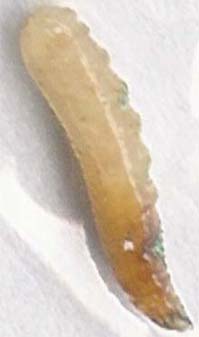 No, according to researchers in the UK who conducted the VenUS II study.
No, according to researchers in the UK who conducted the VenUS II study.
But should that be the ultimate measure of its value in patients with venous ulcers? Continue reading Are maggots cost-effect for leg ulcers? →
 Dr. Désirée Lie from the University of California at Irvine Medical Center has reviewed the literature.
Dr. Désirée Lie from the University of California at Irvine Medical Center has reviewed the literature.
She presents case histories and guidelines for its use. Here are the highlights. Continue reading What’s zinc good for? →
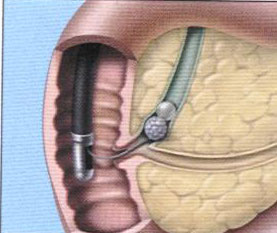 Endoscopic retrograde cholangiopancreatography (ERCP) is used to diagnose and treat conditions of the bile ducts, including gallstones, inflammatory strictures (scars), leaks (from trauma and surgery), and cancer.
Endoscopic retrograde cholangiopancreatography (ERCP) is used to diagnose and treat conditions of the bile ducts, including gallstones, inflammatory strictures (scars), leaks (from trauma and surgery), and cancer.
Researchers from Chiba University in Japan used shakuyaku-kanzo-to (TJ-68) to suppress spasms of the small intestine during ERCP procedures. Continue reading Herbal alternative to control intestinal spasm →
 Â In some cases, it might speed healing, according to this review from The Cochrane Library. Continue reading Honey to treat wounds →
 In some cases, it might speed healing, according to this review from The Cochrane Library. Continue reading Honey to treat wounds →
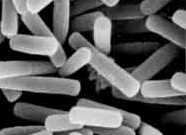 Â Helicobacter pylori are bacteria that cause chronic low-level inflammation of the stomach lining and are linked to the development of duodenal and gastric ulcers and stomach cancer.
 Helicobacter pylori are bacteria that cause chronic low-level inflammation of the stomach lining and are linked to the development of duodenal and gastric ulcers and stomach cancer.
Researchers from the College of Medicine in Seoul, South Korea added a probiotic-containing yogurt to usual therapy. Continue reading Adding yogurt to H pylori treatment →
 It’s unclear whether killing the bacteria called Helicobacter pylori improves symptoms in patients with dyspepsia (ie, stomach pain with fullness, bloating, or nausea). But there is benefit in people with ulcers.
It’s unclear whether killing the bacteria called Helicobacter pylori improves symptoms in patients with dyspepsia (ie, stomach pain with fullness, bloating, or nausea). But there is benefit in people with ulcers.
Here’s a review from American Family Physician that recommends that all of us with dyspepsia be tested and treated if H. pylori is found. Recommendations from the American College of Gastroenterology are here.
Is there a role for CAM?
Continue reading The poor record of CAM to treat H. pylori bacteria →
 Adding acupuncture is more effective than doubling the proton pump inhibitor drug (PPI) dose in controlling gastro-esophageal reflux (GERD) symptoms in patients who failed standard-dose PPI. Continue reading A complementary role for acupuncture in heartburn →
Adding acupuncture is more effective than doubling the proton pump inhibitor drug (PPI) dose in controlling gastro-esophageal reflux (GERD) symptoms in patients who failed standard-dose PPI. Continue reading A complementary role for acupuncture in heartburn →
 Here’s a sobering account of the effect of alternative therapies on the quality of life and healthcare spending of Chinese patients with osteoarthritis (OA). Continue reading Alternative therapies in patients with osteoarthritis →
Here’s a sobering account of the effect of alternative therapies on the quality of life and healthcare spending of Chinese patients with osteoarthritis (OA). Continue reading Alternative therapies in patients with osteoarthritis →
 They occur when the skin breaks down after staying in one position for too long. Constant pressure against the skin reduces the blood supply and the tissue dies.
They occur when the skin breaks down after staying in one position for too long. Constant pressure against the skin reduces the blood supply and the tissue dies.
It’s a problem for people in a wheelchair or bedridden. Continue reading Preventing pressure ulcers →
 In about 25% of people, the usual triple drug therapy fails to kill the bacteria Helicobacter pylori — the cause of the inflamed stomach and ulcer.
In about 25% of people, the usual triple drug therapy fails to kill the bacteria Helicobacter pylori — the cause of the inflamed stomach and ulcer.
In this study, triple drug therapy was complemented by a probiotic capsule (Probinul) and lactoferrin. Continue reading Probiotics and lactoferrin improve treatment of gastritis and peptic ulcer →
 Dr. Cathy Wong is a licensed naturopath and certified nutritionist. She writes an upbeat column on the About website.
Dr. Cathy Wong is a licensed naturopath and certified nutritionist. She writes an upbeat column on the About website.
In one article she discusses Althaea for cough and sore throat, ulcers, and irritated skin. Continue reading Marshmallow (Althaea officinalis): Where’s the data? →
 Indomethacin (Indocin) can cause serious intestinal side effects including inflammation, bleeding, and ulcers. So, if you’re going to test the value of a supplement that claims to protect the intestines, what better than to see if it protects against indomethacin side effects.
Indomethacin (Indocin) can cause serious intestinal side effects including inflammation, bleeding, and ulcers. So, if you’re going to test the value of a supplement that claims to protect the intestines, what better than to see if it protects against indomethacin side effects.
Here are the details.
Continue reading Zinc carnosine stimulates repair of intestinal damage →
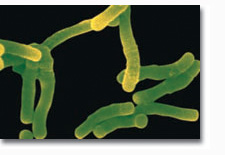 Helicobacter pylori is a common infection of the stomach. Although most people have no symptoms, it’s related to the development of ulcers and is probably related to cancers involving the stomach.
Helicobacter pylori is a common infection of the stomach. Although most people have no symptoms, it’s related to the development of ulcers and is probably related to cancers involving the stomach.
Currently, H pylori infection is treated with a proton pump inhibitor plus two antibiotics — called triple therapy. Adding a probiotic food to triple therapy does not appear to help eliminate this bacteria in children.
Continue reading Trying to treat stomach infections with probiotics →
 In the past year, several studies on this topic have appeared. The results are positive.
In the past year, several studies on this topic have appeared. The results are positive.
So, let’s review.
Continue reading Pycnogenol treatment of venous insufficiency →
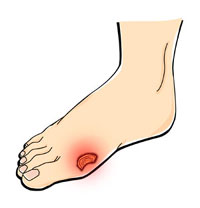 One of the major complications of diabetes mellitus is the change in small blood vessels called microangiopathy. It’s associated with kidney failure and blindness, as well as other conditions such as diabetic ulcers.
One of the major complications of diabetes mellitus is the change in small blood vessels called microangiopathy. It’s associated with kidney failure and blindness, as well as other conditions such as diabetic ulcers.
Here are the results of a study of pycnogenol in people with diabetic ulcers.
Continue reading Improvement in diabetic ulcers with pycnogenol →
 An algorithm for treating type 2 diabetes appears in Diabetes Care this month. Here’s a summary of the impressive effects of weight control ? if you can maintain it over the long-term.
An algorithm for treating type 2 diabetes appears in Diabetes Care this month. Here’s a summary of the impressive effects of weight control ? if you can maintain it over the long-term.
Benefits of weight loss.
Continue reading The benefits of weight control in type 2 diabetes →
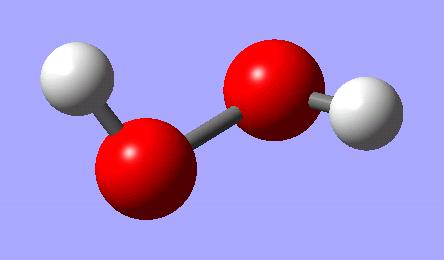 It’s possible to purchase 35% hydrogen peroxide over the Internet and use it to treat AIDS, cancer, emphysema, and other serious and life-threatening diseases. But is it a good idea?
It’s possible to purchase 35% hydrogen peroxide over the Internet and use it to treat AIDS, cancer, emphysema, and other serious and life-threatening diseases. But is it a good idea?
Continue reading High-strength hydrogen peroxide. Be careful →
Complementary and Alternative Medicine: Fair, Balanced, and to the Point
![]() FDA is warning consumers that Reumofan Plus, marketed as a natural dietary supplement for pain relief and other serious conditions, contains several active pharmaceutical ingredients not listed on the label that could be harmful.
FDA is warning consumers that Reumofan Plus, marketed as a natural dietary supplement for pain relief and other serious conditions, contains several active pharmaceutical ingredients not listed on the label that could be harmful.
 No,
No,  Endoscopic retrograde cholangiopancreatography (
Endoscopic retrograde cholangiopancreatography ( Â In some cases, it might speed healing, according to this
 In some cases, it might speed healing, according to this   Helicobacter pylori are bacteria that cause chronic low-level inflammation of the stomach lining and are linked to the development of duodenal and gastric ulcers and stomach cancer.
 Helicobacter pylori are bacteria that cause chronic low-level inflammation of the stomach lining and are linked to the development of duodenal and gastric ulcers and stomach cancer. Adding acupuncture is more effective than doubling the proton pump inhibitor drug (PPI) dose in controlling gastro-esophageal reflux (GERD) symptoms in patients who failed standard-dose PPI.
Adding acupuncture is more effective than doubling the proton pump inhibitor drug (PPI) dose in controlling gastro-esophageal reflux (GERD) symptoms in patients who failed standard-dose PPI.  Here’s a sobering
Here’s a sobering  They occur when the skin breaks down after staying in one position for too long. Constant pressure against the skin reduces the blood supply and the tissue dies.
They occur when the skin breaks down after staying in one position for too long. Constant pressure against the skin reduces the blood supply and the tissue dies. In the past year, several studies on this topic have appeared. The results are positive.
In the past year, several studies on this topic have appeared. The results are positive. One of the major complications of diabetes mellitus is the change in small blood vessels called
One of the major complications of diabetes mellitus is the change in small blood vessels called  An algorithm for treating type 2 diabetes
An algorithm for treating type 2 diabetes